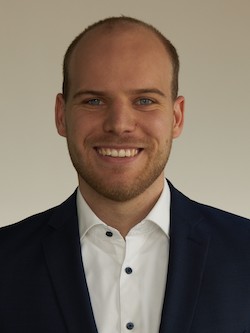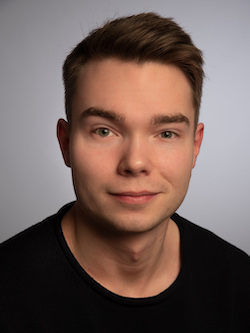This seminar will take place on October 28 at 11:00. The seminar will be in a hybrid format with:
- in-person session in the IST Taguspark Campus, Room 1.38 (1st floor)
- online, via Zoom https://videoconf-colibri.zoom.us/j/91767978430?pwd=ZEloV1pXZS9hTzhHRFUvWDhsZmNNUT09
Our seminars are free to attend and open to everyone. Please share with whomever may be interested.


Summary
After a short introduction to the general logistics research in Dortmund, we take a deep dive into two specific research topics: Hybrid production and 6D pose estimation for localization of objects in warehouses. The hybrid production is a concept that exploits the advantages of an assembly line and a matrix production by combining both concepts. A key barrier of this concept is the ability to be able to control the output sequence of the matrix production, a highly combinatorial problem. We present a concept that generates production schedules with defined output sequences for the matrix production based on answer set programming (a declarative problem solving approach). In general, such flexible concepts rely on the possibility of locating and tracking the objects in the system. Therefore, we present an approach for 6D pose estimation for localization, to locate and track logistic objects within a warehouse. This project aims to achieve accurate location and tracking performance with low cost RGB cameras instead of costly tracking systems.
Speakers' bios
Pascal Kaiser is a research assistant at the chair of material handling and warehousing. He studied Logistics (M.Sc.) in Dortmund and Industrial Engineering (B.Sc.) in Karlsruhe. His research focus is on production scheduling of hybrid productions.
Frederik Polachowski is a research assistant at the chair as well. He has a bachelor degree in computer science and is currently finishing his master degree. His main research area is in computer vision and data science in a logistical context.
